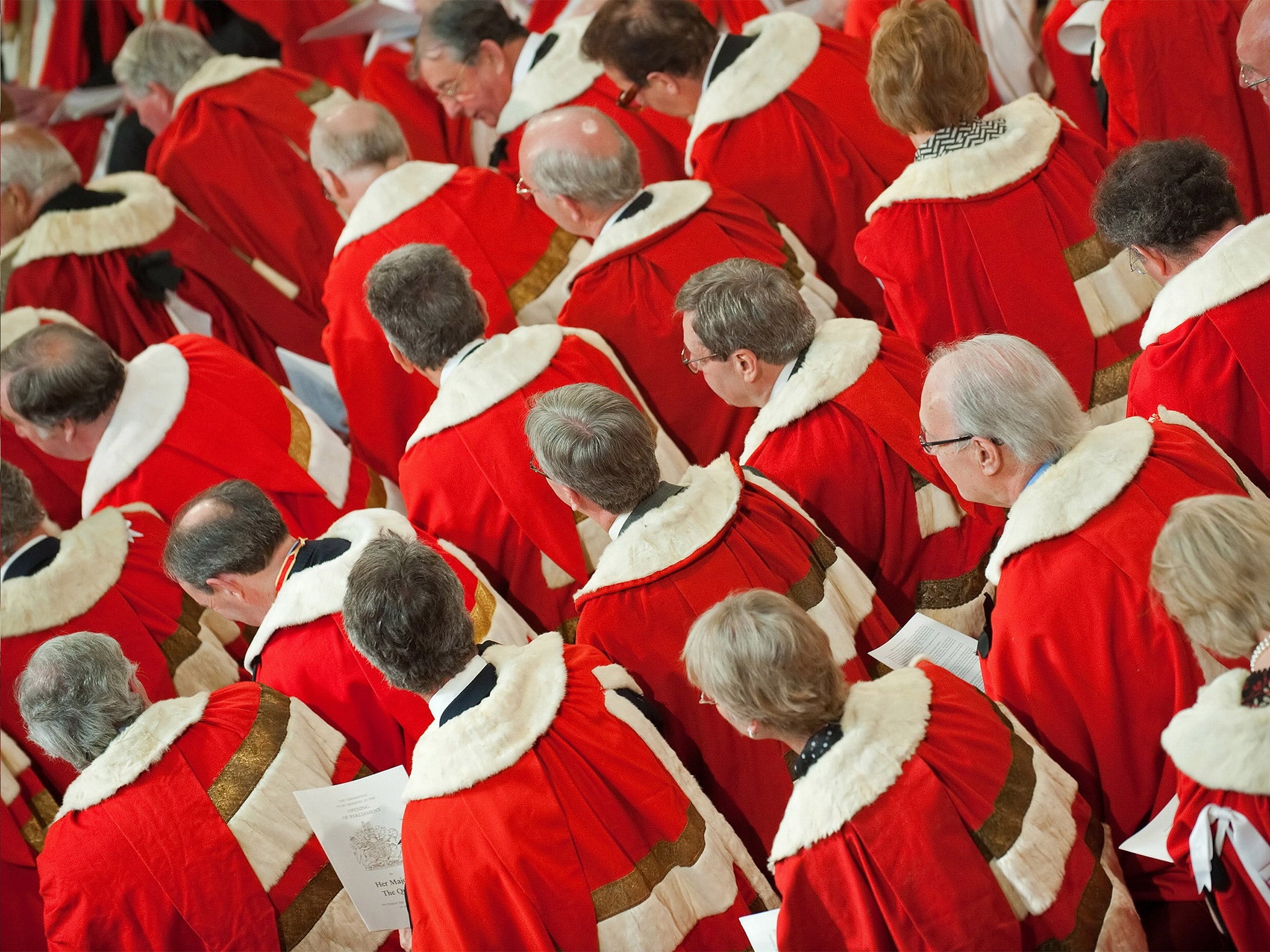Tax credits: Government's 'rapid review' of House of Lords comes under fire
Constitutional experts and senior MPs have cast doubt on claims peers flouted convention by delaying tax credit cuts

The Government’s “rapid review” of the House of Lords has come under fire after constitutional experts and senior MPs cast doubt on claims that peers flouted convention by delaying tax credit cuts.
Labour’s Shadow Leader of the House of Commons Chris Bryant accused the government of fashioning “a pretend constitutional crisis” by asking Tory peer Lord Strathclyde to review the power of the Upper House, while senior Tory MP David Davis said the Lords had acted “within their rights” by voting against the Government.
However, Lord Strathclyde said peers the Lords had “behaved wrongly, deplorably, and unnecessarily” and said his findings could be published by Christmas.
The justification for the review, which will consider how to secure the primacy of the House of Commons on financial matters, hinges on the claim that the Lords breached convention by interfering in a finance and tax issue. However, Leader of the House of Commons Chris Grayling admitted that tax credits were “a benefits matter and not a tax matter”.
Mr Bryant said this meant the tax credits reforms had to go through the Lords, making the review meaningless.
Lord Lisvane, the former Clerk of the House of Commons and a leading constitutional expert, told MPs on the Public Administration and Constitutional Affairs Committee this week that talk of a constitutional crisis was “entirely hyperbolic”, pointing out that the original 2002 Tax Credit Act made it clear that any regulations under it should be approved by both houses.
And Mr Davis, who is also one of 10 Conservative MPs backing a call for the Government to “reconsider” the effect of tax credit cuts on low paid workers, said that “whichever level you take it”, the Lords had been “within their rights”.
Lord Strathclyde said it would not be right to flood the House of Lords with Conservative peers to reduce Labour and Liberal Democrat dominance. But did not rule out reform of the Parliament Act, which determines the powers of the Lords.
“At its most extreme that is one possible solution to try and amend the Parliament Acts,” the Tory peer told BBC Radio 4’s World at One programme. “It’s one of the options that are open to the Government and no doubt it will be one of the issues that I’ll examine. There are many others.”
Any changes to the Government’s tax credit reforms will be set out in the Chancellor’s Autumn Statement next month, David Cameron told MPs. The Prime Minister declined six times to answer questions from Labour leader Jeremy Corbyn, who demanded to know whether the cuts would still come into effect, as planned, in April 2016.
“This is not a constitutional crisis; it is a crisis for three million families in this country who are very worried about what is going to happen next April,” Mr Corbyn said. Opponents of the Government’s tax credit reforms are said to be concerned the review of the Lords will distract attention away from the £4.4bn cuts, which could see millions of families losing up to £1,300 a year.
On Thursday MPs will debate a motion by Labour MP Frank Field calling on the Government to bring forward proposals to mitigate the impact of the tax credit cuts on low paid workers. The motion is backed by 10 Conservative MPs including Mr Davis, and Conservative London Mayoral candidate Zac Goldsmith.
Mr Davis called on the Government to stagger the cuts, so that they come into effect gradually in line with increases in the minimum wage.
“There are two objectives which are incredibly important,” he said. “One is to achieve fiscal balance by 2020. The other is not to do harm to the group of our society that most need protection: the working poor. The best way seems to me to synchronise the reductions in tax credits with the increases in minimum wage, basically on a year-by-year basis.”
Conservative MP for Stevenage, Stephen McPartland who is also backing the Frank Field motion, said the tax credit cuts were a “blunt instrument” and called for the Government to put forward proposals to soften the blow before next month’s autumn statement.
“The next few weeks need to be a discussion,” he said.
Subscribe to Independent Premium to bookmark this article
Want to bookmark your favourite articles and stories to read or reference later? Start your Independent Premium subscription today.

Join our commenting forum
Join thought-provoking conversations, follow other Independent readers and see their replies